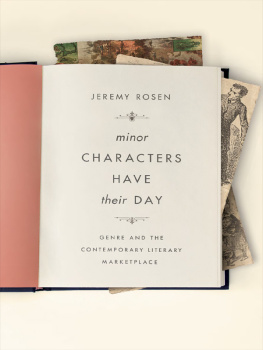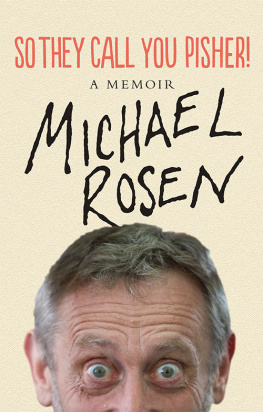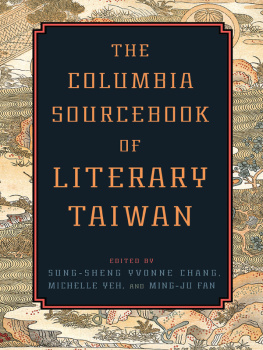Table of Contents
MINOR CHARACTERS HAVE THEIR DAY
Literature Now
LITERATURE NOW
Matthew Hart, David James, and Rebecca L. Walkowitz, Series Editors
Literature Now offers a distinct vision of late-twentieth- and early-twenty-first-century literary culture. Addressing contemporary literature and the ways we understand its meaning, the series includes books that are comparative and transnational in scope as well as those that focus on national and regional literary cultures.
Caren Irr, Toward the Geopolitical Novel: U.S. Fiction in the Twenty-First Century
Heather Houser, Ecosickness in Contemporary U.S. Fiction: Environment and Affect
Mrinalini Chakravorty, In Stereotype: South Asia in the Global Literary Imaginary
Hctor Hoyos, Beyond Bolao: The Global Latin American Novel
Rebecca L. Walkowitz, Born Translated: The Contemporary Novel in an Age of World Literature
Carol Jacobs, Sebalds Vision
Sarah Phillips Casteel, Calypso Jews: Jewishness in the Caribbean Literary Imagination
Minor Characters Have Their Day
GENRE AND THE CONTEMPORARY LITERARY MARKETPLACE
Jeremy Rosen
Columbia University Press
New York
Columbia University Press
Publishers Since 1893
New York Chichester, West Sussex
cup.columbia.edu
Copyright 2016 Columbia University Press
All rights reserved
E-ISBN 978-0-231-54240-1
Library of Congress Cataloging-in-Publication Data
Names: Rosen, Jeremy.
Title: Minor characters have their day: genre and the contemporary literary marketplace / Jeremy Rosen.
Description: New York: Columbia University Press, 2016. | Series: Literature now | Includes bibliographical references and index.
Identifiers: LCCN 2016002788 (print) | LCCN 2016025468 (e-book) | ISBN 9780231177443 (cloth: alk. paper) | ISBN 9780231542401 (e-book) | ISBN 9780231542401
Subjects: LCSH: Characters and characteristics in literature.
Classification: LCC PN3411 .R67 2016 (print) | LCC PN3411 (e-book) | DDC 809/.927dc23
LC record available at https://lccn.loc.gov/2016002788
A Columbia University Press E-book.
CUP would be pleased to hear about your reading experience with this e-book at .
Cover Design: Derek Thornton/Faceout Studio
Cover Images: Photo by Bryan Longoria/Faceout Studio.
Additional images Shutterstock.
CONTENTS
Minor Characters Have Their Day is a book about genre and a case study of a booming contemporary genre. It attempts to explain how genres work, what defines themform? content? a particular publishing niche?how they emerge and develop, what they reveal about the cultural moment at which they flourish and about the literary, cultural, and commercial institutions and networks through which they circulate. The book draws its insights about genre through the focused analysis of a particular genre that has flourished since the late 1960s and become particularly visible since the late 1990s. These insights may not apply universally, to all genres. Like the varied array of texts that deploy a given genre, genres share some characteristics while diverging from one another in other ways. But since this book argues that genres are by their nature variable, adaptable technologies rather than rule-bound categories, the fact that genres differ from one another is fully compatible with the general theory offered here.
Minor Characters Have Their Day understands genre as a dynamic kind of textual and rhetorical practice with a real historical existence that must be analyzed along several intersecting axes. The most familiar of these axes of inquiry, for todays literary scholars, considers the cultural work of genre. The idea here is that a genres conventional form and thematic preoccupations make legible the social and political concerns of the historical moment at which that genre flourishes. The cultural politics of genre cannot be neatly separated, however, from the formal and institutional pressures that give genres their shapes. A genre becomes visible as such when a succession of producers plays out a set of formal possibilities. This process of formal iteration is never simply reiteration. The riffing on a form that constitutes a genre is also what generates its internal variation and thus the permeable boundaries of generic categories. How much modification of an inherited form can occur before we detect the presence of a new genre? The recent vogue of quantitative literary scholarship abjures such questions, ignoring the internal heterogeneity and porous borders of actual genres, the fact that they are defined by a combination of similarity and difference, stability and dynamism. Furthermore, formal experimentation does not occur in a vacuum. Perhaps the most important argument of Minor Characters Have Their Day emerges out of my insistence that we cannot apprehend the full social and cultural implications of genre, the function of form, without taking into account the commercial and symbolic economies through which genres circulate. Writers adopt genres because they provide existing forms that can be adapted to particular purposes but also because those genres serve strategic functions in a competitive literary field. Publishers seize on a genre and spur its production according to their perception of the readership for such texts and also because those publishers are subject to economic pressures from parent companies and responsive to broader cultural and marketplace transformations. Genre subsists, then, at the nexus of form, cultural history, and material conditions of production and consumption.
The introduction to this book undertakes two considerable tasksand is, as a result, a considerable length for an introduction. It argues that genre needs to be studied along the three intersecting axes traced above, and it introduces readers to some principal characteristics and representative texts of a genre, about which they might have only an intuitive awareness. Attempting to draw a general theory of genre study and acquaint readers with a genre that they will immediately start noticing everywhere in the popular literary landscape, the introduction lays down a methodological framework that the subsequent chapters apply to the genre I have dubbed minor-character elaboration.
There are many minor characters lurking in the background of this text, but only one narrator-protagonist. The fact that they are not visible in the body of this book should not be mistaken for insignificance. On the contrary, I could not have completed it without their help. I wont elaborate each character into an entire novel, but I hope each of you knows how grateful I am for your help. My first thanks are owed to Mollie Godfrey for providing the conversation that sparked this project and for her challenging and thoughtful responses to my work for a long time afterward. The most major minor characters of this project, those whose efforts appear most prominently in this text yet remain largely hidden, are my graduate advisors Deborah Nelson, Kenneth Warren, and Sandra Macpherson, who spent countless hours reading drafts, discussing the project on the phone and in person, and constantly pushing me to refine my thinking. Thank you, Debbie, for challenging me to take genre fiction seriously and for refusing to apologize for the fact that it is genre fiction. Ken, thanks for helping me put pressure on the political claims of minor-character elaborations and for making me figure out social formalism in Colloquium. And thank you, Sandra, for helping me see the centrality of minor characters to the history of the novel, for provoking me to a more nuanced understanding of the politics of form, and, most of all, for the constant generosity and confidence you have extended to me. The projects origins also owe much to a number of other mentors at the University of Chicago with whom I began discussing a set of issues surrounding point of view, sympathy, rewritings of canonical texts, and the workings of the culture industry and around which this project coalesced: Jim Chandler, Bill Veeder, and Miriam Hansen. Conversations with other colleagues at Chicago were indispensable. Thanks to Robin Valenza, Mark Hansen, Leela Gandhi, Jackie Goldsby, Elizabeth Chandler, Benjamin Blattberg, Bobby Baird, Amy Gentry, Nathan Wolff, Moacir de Sa Pereira, Josh Kotin, Lubna Najar, Tom Perrin, and the members of the American Cultures Workshop. Thanks also to the Caribbean English Teachers Association, the CUNY Graduate Center, and James Madison University for allowing me to present parts of this work in progress.
















